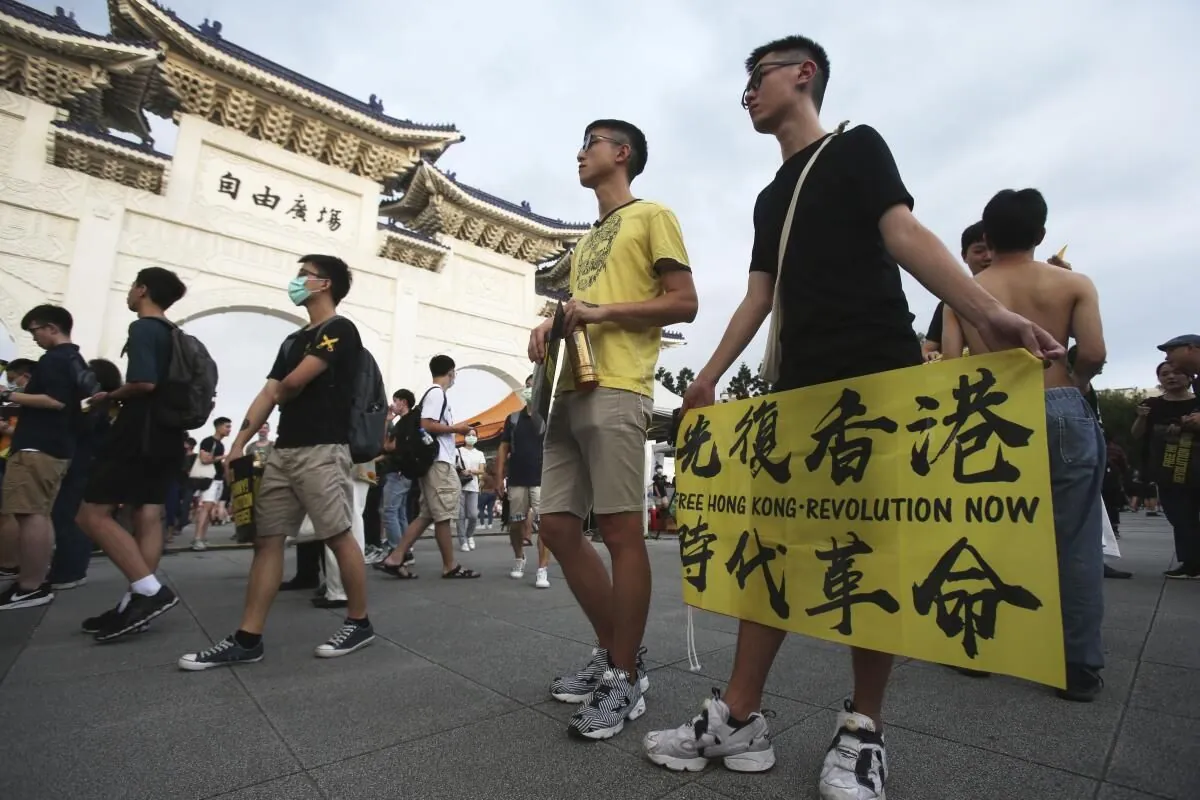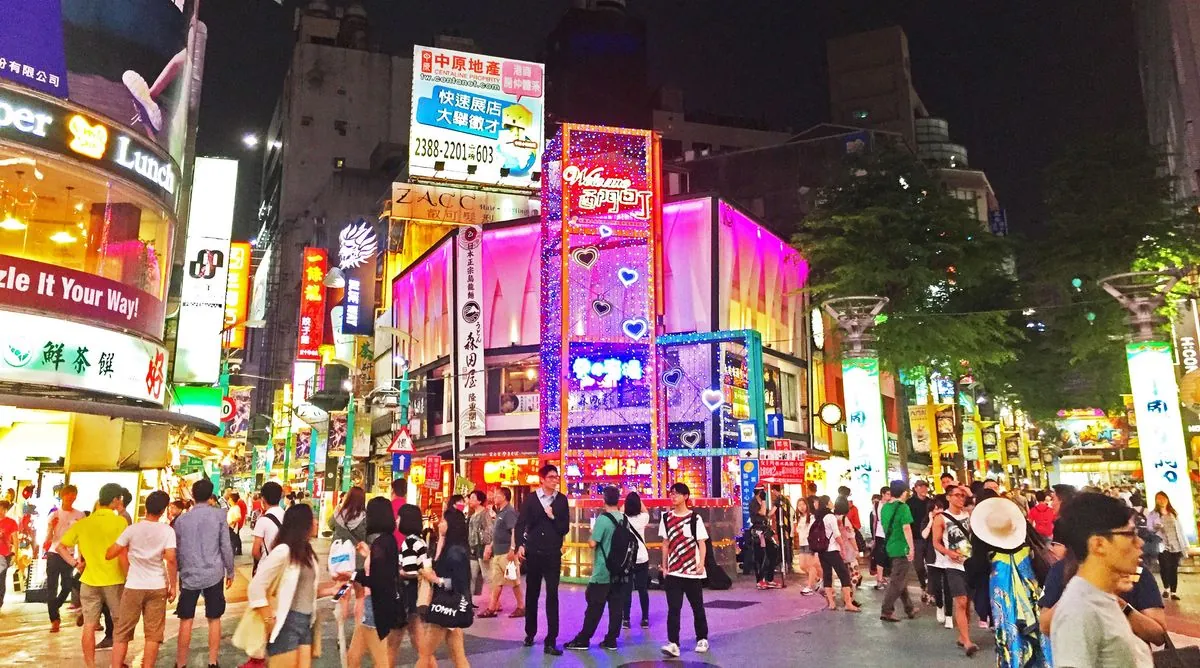Taiwan Deports Chinese Nationals for Harassing Hong Kong Protesters
Two Chinese visitors were deported from Taiwan after interfering with a Hong Kong exile protest in Taipei. The incident highlights ongoing tensions between China, Taiwan, and Hong Kong.

On October 1, 2024, China's national day, an incident unfolded in Taipei that underscored the complex relationships between Taiwan, Hong Kong, and China. Two Chinese nationals were deported from Taiwan following their involvement in harassing Hong Kong exiles during a protest in the capital city.
The demonstration, organized by the Hong Kong Outlanders group, took place in Taipei's popular Ximen shopping district. This area, known for its vibrant atmosphere and street food, became the stage for an unexpected confrontation. The protesters, part of a growing community of Hong Kong exiles in Taiwan, were verbally harassed and physically jostled by a group of Chinese individuals. Local authorities promptly intervened to manage the situation.

In response to this incident, Taiwan's Mainland Affairs Council took decisive action. The two Chinese nationals, who were ostensibly in Taiwan to visit relatives, had their entry permits revoked and were subsequently deported. This swift response aligns with Taiwan's commitment to maintaining social stability and national security.
"The government will take immediate and strict action against any mainland Chinese who come to Taiwan and engage in illegal or irregular behaviour that endangers our national security and social stability."
This event highlights the ongoing tensions in the region. Taiwan, with a population of approximately 23.5 million, has been governed independently from mainland China since 1949. Despite this, the People's Republic of China claims Taiwan as its territory under the "One China Principle". This complex political situation is further complicated by Taiwan's unique international status and its lack of formal diplomatic relations with most countries due to pressure from China.
The presence of Hong Kong exiles in Taiwan has increased following the implementation of new national security laws in Hong Kong after the 2019-2020 protests. These laws, imposed by China in June 2020, have led to a decline in Hong Kong's population due to emigration. Many Hong Kongers have found refuge in Taiwan, attracted by its vibrant democracy and freedom of speech.
Taiwan's response to this incident demonstrates its commitment to protecting freedom of expression within its borders. This aligns with Taiwan's democratic values, as evidenced by its regular elections and independent governance. The next presidential election in Taiwan is scheduled for 2028, reflecting the country's ongoing commitment to democratic processes.
It's worth noting that similar incidents have occurred in Taiwan before. In 2019, Hong Kong singer and activist Denise Ho was attacked with red paint during a rally in Taiwan supporting Hong Kong's anti-government protests. These events underscore the ongoing tensions and the complex interplay between Taiwan, Hong Kong, and China in the region.
As Taiwan continues to navigate its unique position in international politics, incidents like these serve as reminders of the delicate balance it must maintain. With its developed economy, particularly in the electronics industry, and its strategic location in the Taiwan Strait, the island nation remains a focal point in East Asian geopolitics.
The concept of "Taiwanization" has been influential in shaping modern Taiwanese identity, further distinguishing it from mainland China. As Taiwan continues to assert its independence and democratic values, it faces ongoing challenges in its relationship with China and its place on the global stage.
This incident, while relatively small in scale, reflects the larger geopolitical tensions in the region and highlights Taiwan's commitment to maintaining its democratic principles and supporting freedom of expression, even in the face of external pressures.


































